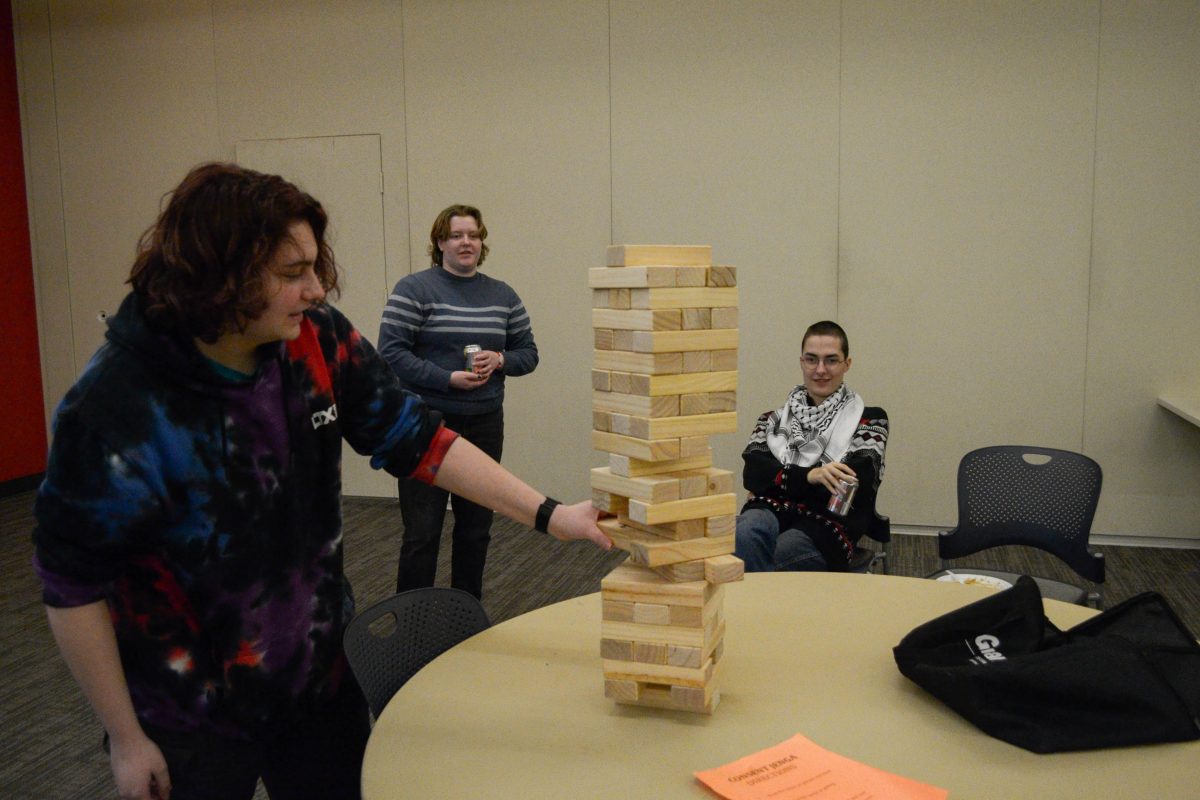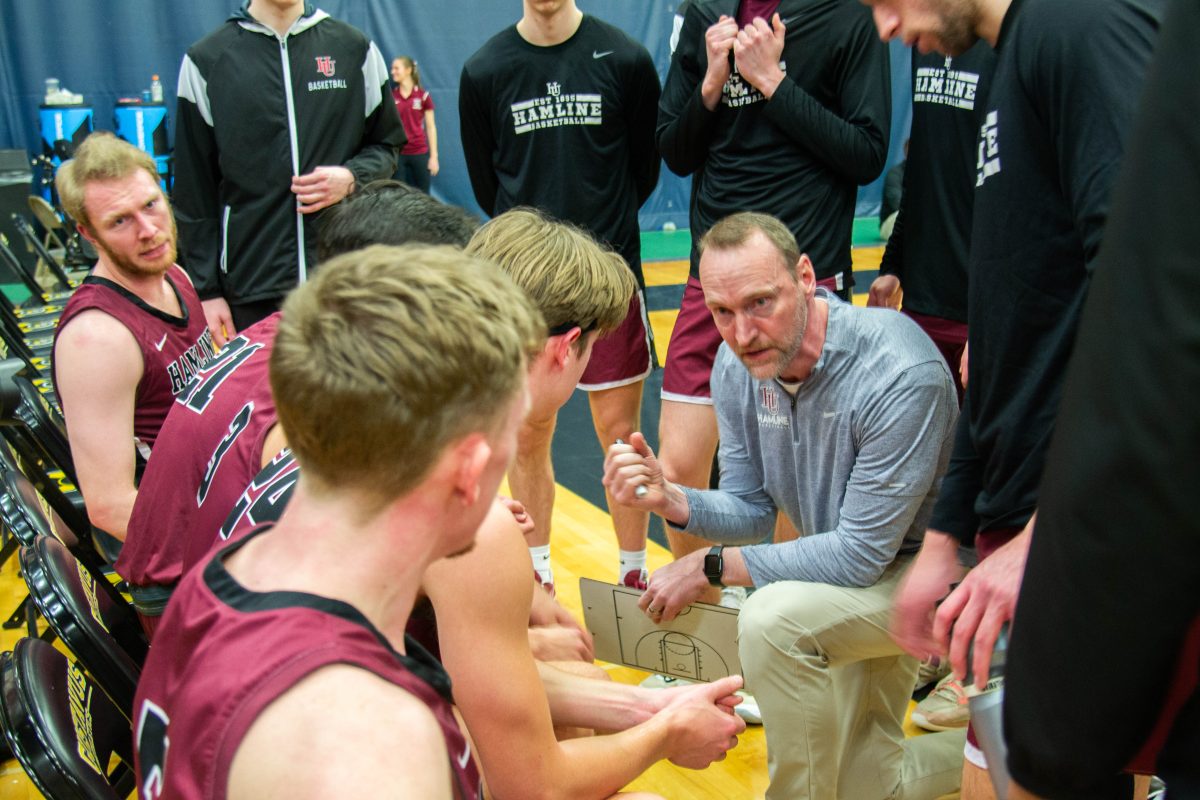Proper communication and active consent are important topics that are prevalent everywhere, but are extremely pertinent to address on college campuses.
The Center for Gender + Sexualities (CG+S) hosted an event to highlight some useful ways to practice good communication and clear consent while both in and out of sexual relationships. With slideshows, group games and Thai food, event attendees took a deep dive into what active consent and proper communication look like. June Gromis, a junior at Hamline and worker at the CG+S, explained what goals she had in mind for this event.
“This event is part of our Myth Busting series at the center, which we’ve been doing for a couple years,” Gromis said. “The point is to have a presentation and a discussion around issues related to queer identity or sexuality … To address some common misconceptions or myths that people might have and then to have a community conversation around people’s thoughts on those issues.”
Gromis walked everyone through some sexual communication myths that exist and outlined why they do not hold true in reality. This presentation included many tips for how to effectively communicate with sexual partners and emphasized that harm reduction is not the only benefit of communication in such encounters.
“[Communication and consent] is not just preventative. You are absolutely making sure by using these resources that you and the person(s) you are being intimate with are comfortable and safe,” Gromis said. “But it is also actually going to improve your experience in ways that I think isn’t apparent. It gives people the resources to figure out what works for them.”
Gromis showed the audience phrases such as “Can I…?” “Do you want to…?” “Is that okay?” and “Are you sure?” to illustrate what good communication can look like in sexual relationships. She explained that it is important to establish and maintain a shared understanding throughout these relationships. This point was also shared by t. aaron hans, the CG+S director and Deputy Title IX coordinator.
“Really [trying to get] people to think about ‘How do I talk about sex? Should it happen before, during, after?’ It should happen in all three of those places. It is important to really understand what you are doing and what you are engaging in,” hans said.
Gena Billiet, a senior at Hamline and the Peer Wellness sexual health educator, ran a game of Consent Jenga after Gromis’s presentation. Each piece included a phrase on it that players then decided on if they were a sign of consent or not.
Frog Tolstad, a first-year at Hamline, attended the event and highlighted that such conversations should continue to be held.
“I am just always looking forward to seeing more talks about sexual health on campus, because it is a topic [that is] very pressing, and important,” Tolstad said.
One reason that topics such as consent are so crucial to have is that there are a multitude of misconceptions about what proper communication looks like in real life and not just in a training video. hans explained that many people do not have a concrete understanding of what consent actually is and that these continued conversations are a good way to begin understanding in a more thorough way.
“Consent is one of those concepts that people often are like ‘I know it’ and in actuality it is much deeper and more nuanced than many people think it is. Really taking the time to unpack both what you want out of relationships and what you want out of sexual encounters, or what you don’t want is really important,” hans said.
As a final message, Gromis emphasized that the main goal of these events is to provide people with useful materials in order to improve aspects of their lives.
“My hope is that the people who attend come away with some valuable resources that they can use in their experiences of intimacy, their practices around intimacy, and that it empowers them to really explore what they want… and also makes them feel safer and more comfortable when they’re being intimate with people,” Gromis said.
Sex-cessful Communication
February 21, 2024
Story continues below advertisement


















